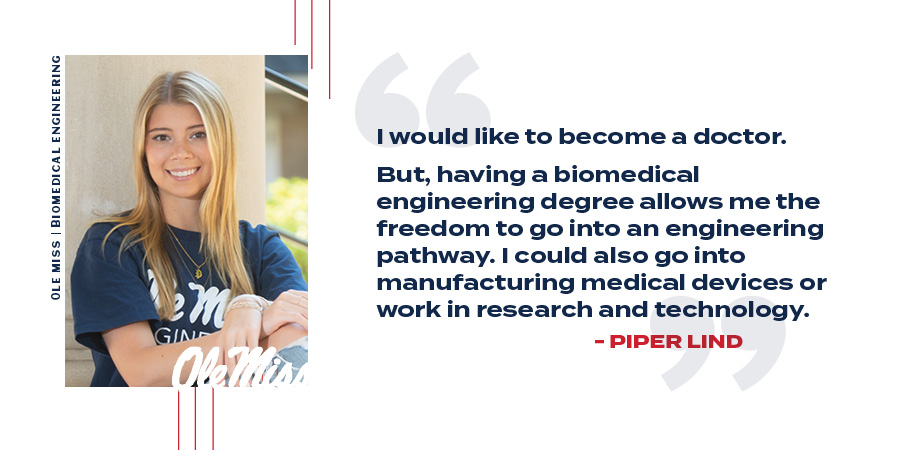Combine the design and problem-solving skills of engineering with medical and biological sciences to advance healthcare treatment
Biomedical engineers do a lot of different things that fall under the umbrella of biomedicine – everything from creating new medical devices to developing next-generation pharmaceuticals.
With a degree in biomedical engineering, you can pursue a job in the biomedical industry or graduate studies in the field. Also, you’ll be well-placed to seek a professional career in medicine, dentistry, pharmacy or patent law.

What you’ll find at Ole Miss
You can choose one of three academic tracks in our biomedical engineering program:
- Biomolecular engineering – brings together the study of molecular biology, biophysics and chemical engineering to modify or create new molecules. This can lead you to a job working on innovative drugs and medical processes, as well as new foods and fuels.
- Biomedical systems – provides you with an understanding of medical instrumentation, devices and biomechanics. You’ll also learn about signal analysis, using technology and other tools to better understand a person’s health.
- Bioinformatics – applies big data analytics to genome sequencing, medical imaging and large data management. This degree can start you down the path for a career in computational medical research, software development or database management.
- Pre-med – combines courses in biology and chemistry with the rigor of an engineering curricula. This sets you up for success in medical school and future medical endeavors.
 Helpful info
Helpful info
Department of Biomedical Engineering
Sample course plan
Book a visit
Apply now